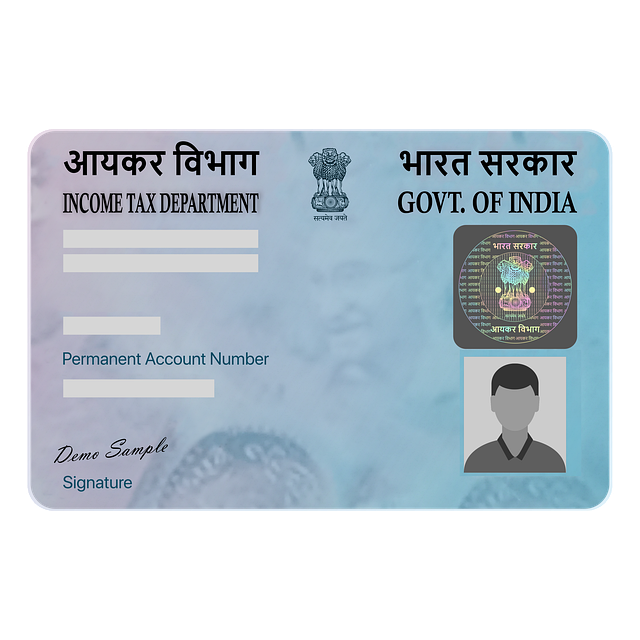Translation services for UK Regulatory Compliance Documentation are vital to ensure accurate communication across borders, maintaining high product/service quality and user safety standards. Specialized professionals navigate complex legal and technical jargon, avoiding potential errors that could lead to non-compliance, fines, and reputational damage. Rigorous Quality Assurance processes, industry glossaries, and advanced translation memory technology guarantee precise translations, with a focus on terminological consistency and adherence to UK regulatory frameworks. Businesses must prioritize accuracy in document translation to mitigate legal risks and maintain credibility.
In the intricate landscape of UK regulatory documentation, accurate translations are not a luxury but a necessity. This article delves into the critical aspects of ensuring precision in translation services for such documents. From understanding the importance of clear communication to navigating common challenges and leveraging native language expertise, we explore best practices. Additionally, we scrutinize quality assurance processes, legal implications, and the role of expert translators in upholding accuracy. By adhering to these guidelines, organizations can optimize their translation services for UK regulatory compliance documentation.
- Understanding the Importance of Accurate Translations in UK Regulatory Documentation
- Challenges and Common Mistakes in Translation Services for Such Documents
- The Role of Native Language Expertise in Ensuring Precision
- Quality Assurance Processes for UK Regulatory Compliance Documentation
- Legal Implications of Inaccurate Translations: A Comprehensive Look
- Best Practices to Optimize Accuracy in Translation Services for Regulatory Purposes
Understanding the Importance of Accurate Translations in UK Regulatory Documentation

In the realm of UK regulatory documentation, precision and accuracy are paramount. When it comes to translation services for such vital documents, every word matters. Inaccurate translations can lead to severe consequences, including legal repercussions, loss of credibility, and even financial penalties. Regulatory compliance is a complex web that requires an in-depth understanding of both the source and target languages, along with expertise in the specific industry and its terminology.
Translation services tailored for UK regulatory documentation must ensure fluency, clarity, and adherence to legal and technical jargon. They play a crucial role in facilitating effective communication across borders, ensuring that instructions, warnings, and safety measures are conveyed accurately and consistently. This is essential for maintaining high standards of product or service quality and user safety, which are the cornerstone of UK regulatory frameworks.
Challenges and Common Mistakes in Translation Services for Such Documents

Translation services for UK regulatory compliance documentation face several unique challenges. One significant hurdle is the intricate nature of legal and technical jargon, which often requires specialized knowledge to convey accurately across languages. Misinterpretations or mistranslations can lead to severe consequences, including non-compliance, fines, and damage to reputation.
Common mistakes in this domain include literal translations that fail to capture contextual nuances, inconsistent terminology, and lack of cultural adaptation. These errors can arise from using automated tools without human oversight or relying on translators without relevant industry experience. Ensuring precision demands a meticulous approach, involving not just linguistic expertise but also deep understanding of the UK regulatory landscape and industry-specific terminologies.
The Role of Native Language Expertise in Ensuring Precision

The quality and accuracy of UK regulatory document translations heavily rely on the expertise of native language professionals. When it comes to compliance documentation, precision is paramount. Translation services that employ native speakers with a deep understanding of both legal jargon and cultural nuances can ensure that documents are not only linguistically correct but also conceptually precise.
These experts possess the skills to capture the intended meaning while adhering to the specific terminology and formatting requirements of UK regulations. Their proficiency in the target language allows them to convey complex ideas accurately, avoiding potential errors or misinterpretations that could impact regulatory compliance. Choosing translation services with a proven track record in handling UK regulatory documentation ensures that your documents are handled by seasoned professionals who understand the intricacies involved.
Quality Assurance Processes for UK Regulatory Compliance Documentation

At our translation company, we understand that accuracy is paramount when it comes to UK regulatory compliance documentation. That’s why we’ve implemented rigorous Quality Assurance (QA) processes designed to ensure every translated document meets the highest standards of precision and consistency. Our team of expert linguists not only possess native-level proficiency in both the source and target languages but also have a deep understanding of the specific terminology and regulatory frameworks relevant to the UK market.
Through a multi-stage QA process, we meticulously check for grammatical correctness, semantic accuracy, and terminological consistency. This includes back-translation and cross-referencing with industry glossaries and authoritative sources. We also employ advanced translation memory technology to maintain coherence across projects and ensure that key terms are handled uniformly. Our commitment to these stringent practices guarantees that our translation services for UK Regulatory Compliance Documentation deliver reliable, error-free results every time.
Legal Implications of Inaccurate Translations: A Comprehensive Look

Inaccurate translations in the context of UK regulatory documentation can have far-reaching legal implications, potentially leading to severe consequences for businesses and individuals involved. When dealing with official documents such as contracts, permits, or safety guidelines, any errors or misunderstandings caused by poor translation quality may render them legally invalid or unenforceable. This is particularly critical in industries where compliance with UK regulations is mandatory, such as healthcare, finance, and manufacturing.
The consequences of inaccurate translations extend beyond mere legal validity. They can result in costly delays, regulatory fines, and even damage to an organization’s reputation. For instance, a mistranslated safety protocol might lead to accidents or injuries, exposing the company to liability issues. Similarly, financial documents with errors may cause compliance breaches, leading to investigations by regulatory bodies like the Financial Conduct Authority (FCA). Therefore, when seeking translation services for UK regulatory compliance documentation, businesses must prioritize accuracy to mitigate these potential legal and financial pitfalls.
Best Practices to Optimize Accuracy in Translation Services for Regulatory Purposes

To ensure the accuracy of translation services for UK regulatory compliance documentation, several best practices should be implemented. Firstly, engaging professional translators with expertise in legal and regulatory language is paramount. These translators not only possess linguistic proficiency but also a deep understanding of the UK’s specific regulatory framework. They stay updated on any changes to relevant laws and guidelines, ensuring that translations remain current and precise.
Additionally, utilizing translation memory tools can significantly enhance accuracy. These tools store previously translated segments, allowing for consistent terminology use and reducing the chance of errors. Quality assurance processes, including thorough revisions and proofreading, are essential to catching subtle mistakes. Client involvement is also crucial; providing clear instructions, defining target audiences, and offering samples of preferred tone and style help guarantee that the final translation aligns perfectly with regulatory requirements.
In ensuring the integrity and effectiveness of UK regulatory document translations, adhering to best practices is paramount. By understanding the nuances of the language, navigating common challenges, and implementing robust quality assurance processes, translation services can deliver precise and compliant documentation. Native language expertise plays a pivotal role in avoiding costly mistakes, while comprehensive legal considerations underscore the significance of accuracy. Optimizing these aspects is essential for maintaining regulatory compliance and safeguarding against potential legal implications. Therefore, prioritizing high-quality translation services specifically tailored to UK regulatory documentation is vital for businesses aiming for precision and success.
